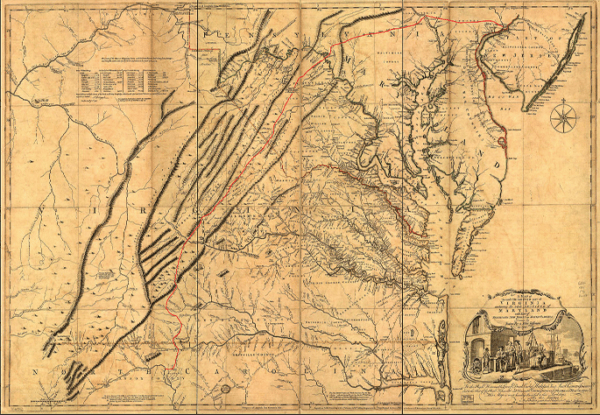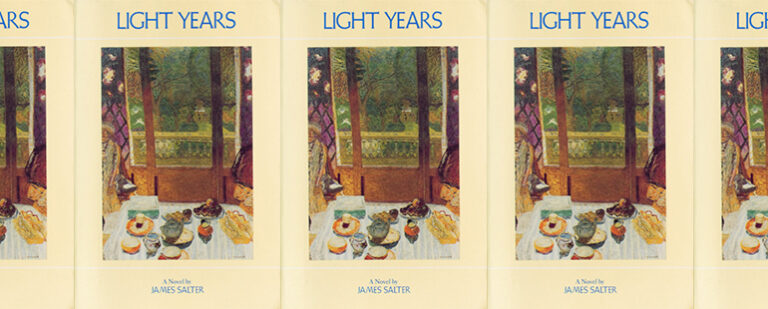Notes on the State of Virginia: Journey to the Center of an American Document, Queries XVII-XVIII

This is the ninth installment of a year-long journey through Thomas Jefferson’s Notes on the State of Virginia.
Query XVII: The different religions received into that state;
Query XVIII: The particular customs and manners that may happen to be received in that state
Here’s a confession. When I talk about Notes on the State of Virginia, I sometimes refer to Jefferson’s “queries” as “cantos.” It’s an unconscious slippage that mistakes the chapters of his book for the section divisions of epic poems by figures like Dante or Ariosto. I’ve tried to catch myself from making this error—Notes is not a poem!—but it emerges anyway. Especially when I’m describing my favorite passages, like Query VI, with its song-like registers of flora and fauna.
I just want you to hear what I hear.
Like the best poems, Notes is the verbal record of Jefferson’s attention. The structural threads that hold it together—all 23 of them—must also bear the weight of his inquiry. Like a poetic canto, which stands or falls on the music of its syllables, Jefferson’s queries must have enough tensile strength to contain his ideas, and space to expand them. In the queries that comprise Notes, Jefferson develops an argumentative framework that relies on balance, symmetry, and linear movement. In this way, the organization of Notes mirrors his ideal vision of American civic life, in which people and institutions progress forward in knowledge and capability.
But poets know that every verse of a song must have a refrain. Something for the reader to remember, to go back to.
Jefferson wants to spend these latter sections of Notes talking about liberty: religious, economic, and moral. In queries XVII and XVIII, he contends with the contradictory nature of American freedom by discussing government’s relationship to religion and slavery, the two major social institutions of his day. In these sections, Jefferson calls for the repeal of laws that criminalize certain types of religious belief such as polytheism or atheism. It’s not that Jefferson is a non-believer himself (his views on religion have been documented); he just doesn’t think the state should declare an official religion or legislate the beliefs of its citizens. “Reason and free inquiry are the only effectual agents against error,” he says. “Give a loose to them, they will support the true religion, by bringing every false one to their tribunal, to the test of their investigation.”
In other words, Jefferson’s ideal America is a republic of open “investigation.” He has faith that “error” will give way to reason so long as public discourse remains accessible to those with differing views. It’s a linear, forward-facing vision.
By 1776, the First General Assembly already had done away with colonial-era tax laws that once supported churches and paid clerical salaries. But as Jefferson composed his drafts of Notes, there still were laws on the books that penalized individuals whose beliefs were at odds with the Protestant majority. Jefferson tells us that people found guilty of religious offenses could legally be excluded from employment and barred from inheriting property. They could lose custody of their children and be refused the right to bring a lawsuit in the court system. Within a few years of writing Notes, Jefferson would draft the Virginia Statute for Religious Freedom, a document that served as our blueprint for the separation of church and state and for the protection of religious freedom. In considering how religion should function within a free society, Jefferson insists in Notes that government shouldn’t impede inquiry, discussion, or even dissent:
[O]ur rulers can have authority over such natural rights only as we have submitted to them. The rights of conscience we never submitted, we could not submit. We are answerable for them to our God. The legitimate powers of government extend to such acts only as are injurious to others. But it does me no injury for my neighbour to say there are twenty gods, or no god. It neither picks my pocket nor breaks my leg.
For Jefferson, religious laws amount to government “coercion,” a practice that he believed would limit the range of scientific inquiry and shut down public debate. Within the structure of American democracy, Jefferson argued, should be space for innovation to flourish in service of truth:
Reason and experiment have been indulged, and error has fled before them. It is error alone which needs the support of government. Truth can stand by itself.
When it comes to the institution of slavery, Jefferson sees the “truth” very clearly. In Query XVIII, he describes slavery as “a perpetual exercise of the most boisterous passions, the most unremitting despotism on the one part, and degrading submissions on the other.” Following the logic that Jefferson establishes in the previous query, he frames slavery as a moral “error” that “needs the support of government” to perpetuate itself—coercion, in other words. Virginia’s extensive slave codes limit the very personhood of enslaved people, isolating them from the protections and benefits of the polis. Slaves may not sue for their freedom or own property. They have no legal claim to their own children, and in Jefferson’s day, families frequently are separated by whim or sale.
For Jefferson, slavery corrupts everyone connected with it, but is particularly damaging to the enslaved, who are alienated from the very country whose economy their labor supports:
For if a slave can have a country in this world, it must be any other in preference to that in which he is born to live and labour for another: in which he must lock up the faculties of his nature, contribute as far as depends on his individual endeavours to the evanishment of the human race, or entail his own miserable condition on the endless generations proceeding from him.
But while Jefferson can imagine an American society that tolerates a variety of coexistent religious faiths, he fears that emancipation may be a zero sum game. In Query XVIII, Jefferson reasons that the binary structure of enslavement means that one party is always on top, while the other is oppressed. Though he foresees the “total emancipation” of slaves on the horizon, Jefferson falls short of envisioning full citizenship for the newly freed. Instead, he imagines a reversal of roles, engineered by divine justice:
Indeed I tremble for my country when I reflect that God is just: that his justice cannot sleep for ever: that considering numbers, nature and natural means only, a revolution of the wheel of fortune, an exchange of situation, is among possible events: that it may become probable by supernatural interference!
It’s interesting to me that Jefferson returns to the subject of slavery this late in Notes. Especially since he seemed, in Query XIV, to have established the opposite position to this one. In that query, Jefferson argued that people of African descent were naturally suited to enslavement, while those of European extraction possessed higher intelligence and artistic capacity. In this query, though, Jefferson frames the practice of enslavement in terms of power, not nature: “For in a warm climate, no man will labour for himself who can make another labour for him.” The subject of Query XVIII is supposed to be “manners,” but Jefferson wants to talk about slavery as a codified expression of social power. And perhaps, in the end, this is what manners are. He uses Query XVIII to discuss the ethical implications of slavery as an ingrained practice, and he admits that the perpetuation of slavery works against the very ideals he wants American democracy to promote. Perhaps Jefferson goes back to the subject of slavery because he knows the rest of his vision will be impossible to achieve without resolving this massive social injustice.
What Jefferson doesn’t quite see in Query XVIII is that justice isn’t always a linear redistribution of power from one side of the scale to the other. The newly freed would not crush their former masters, but the need for contemporary Americans—black and white—to re-examine our shared historical roots in slavery continues to be urgent. Sometimes progress is a circle. Sometimes we all must return to the beginning, not to “turn the tables” on one another, but simply to make more room for everyone to participate.
Sometimes going back—to history and to language—is the only way to move forward.


